Edinburgh Fringe: Anything goes or cancel culture?
- Published
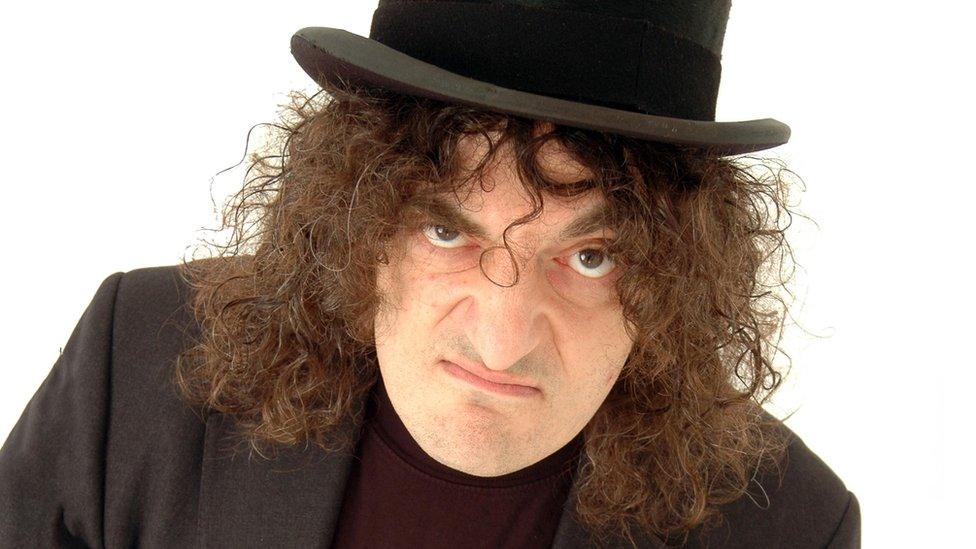
Jerry Sadowitz said his act contained exaggerated irony and nonsense
"I've never known the Fringe to be so censorious," says comedy critic Kate Copstick.
"It's not a nice feeling."
Ms Copstick has been a regular feature of the Fringe for decades and was one of the judges on the Perrier Awards in the early 2000s.
She says the Fringe should be "somewhere you can chance your arm" and feel free to try out material.
Her comments come after recent controversies over shows involving another Fringe veteran, comedian Jerry Sadowitz, and politician Joanna Cherry.
Last summer The Pleasance, a longstanding Fringe comedy brand, cancelled Sadowitz's show after complaints from staff and walkouts by some of the audience.
It said his act was "extreme in its racism, sexism, homophobia and misogyny".
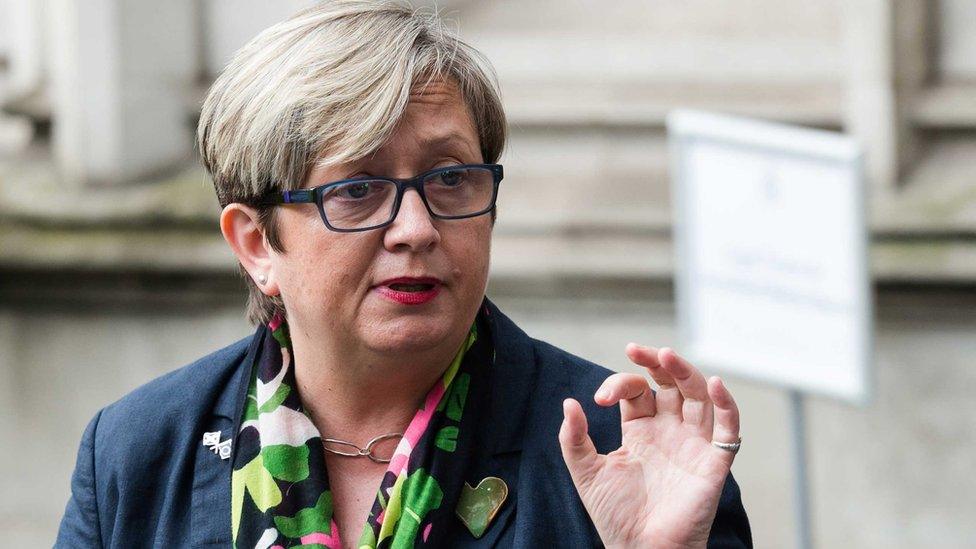
SNP MP Joanna Cherry took legal action against The Stand
Sadowitz, who has been known for his provocative stand-up material for years, said his act had been "cheapened and simplified" by the decision.
He said it contained "a lot of silly, exaggerated irony and nonsense, real fake and exaggerated anger and bile... for the purpose of the funny line which follows it".
The comedian is returning to the Fringe this year, warning audiences "I might just do card tricks and say nothing for a whole hour or I might just do the usual 'screaming fascist' schtick".
He will not be performing at the Pleasance which, perhaps in response to last year's issues sent me this email about a show I was going to attend.
"Dear Valued Customer, we wanted to get in touch with you as soon as we could to make you aware that the content warnings for Dark Noon have now been changed and are as follows: Contains potentially distressing themes. Depictions of physical and sexual violence, haze and strobe lighting."
The show in question is a brutal reimagining of the history of the Wild West by a company of South African actors, so maybe it is not surprising it contains these issues.

Comedy critic Kate Copstick says the Fringe should be "somewhere you can chance your arm"
The Stand venue has also run into controversy over one of its shows this year.
It advertised an appearance by SNP MP Joanna Cherry but then cancelled it because staff said they were not comfortable with her views on transgender issues.
The venue later reinstated the event, saying the decision was "unfair and constituted unlawful discrimination against Ms Cherry".
Ms Copstick says: "The Stand seem to be particularly prone to allowing their temporary front-of-house staff to dictate what the programme is, what is allowable and what is not allowable."
"It's not open access, it's only if you say the right things, and good grief, that's like soviet Russia."
The Stand has increased security for Ms Cherry's event.
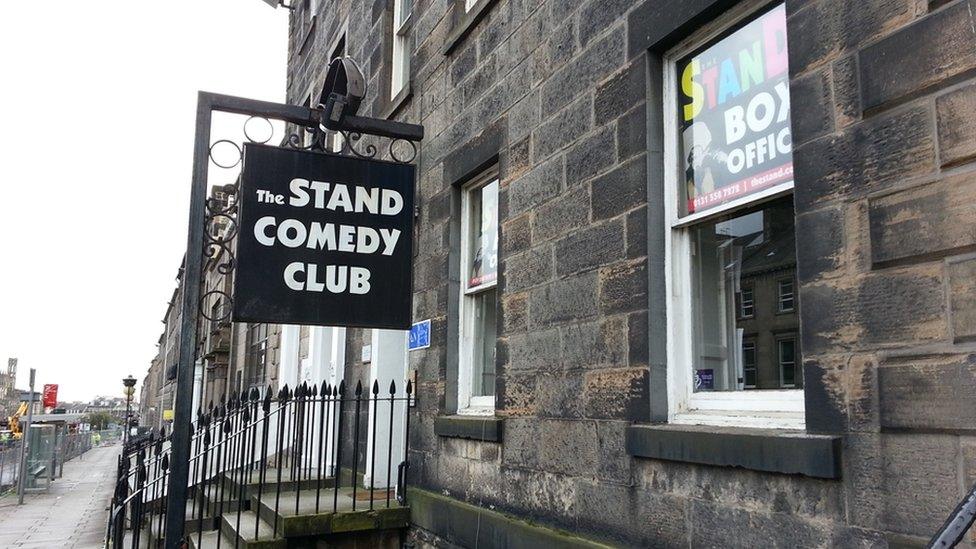
The Stand previously said some of its staff were unwilling to work at the event
Assembly Roxy did the same for Drag Queen Story Hour, which has been the target for protesters wherever it has been staged.
The main character is intended to be a positive LGTBQ role model for children but protesters claim the show is "sexualising their children".
Another drag artist Reuben Kaye, who has himself been the subject of protests, says he isn't surprised that the show is being targeted, despite the proliferation of drag at the Fringe.
"I think this is the price you pay today for being a visibly queer artist," the Australian says.
"You have a target on your back.
"The best part of this is that shows are selling out, there are counter-protests, and supporters going out to protect those performers and allow these children to have a lovely time."
"Half the books we read to our children are by queer authors but protesters don't care about that, they just care that someone dares to put lippie on, saying we're a threat to children.
"We're not a threat to children."
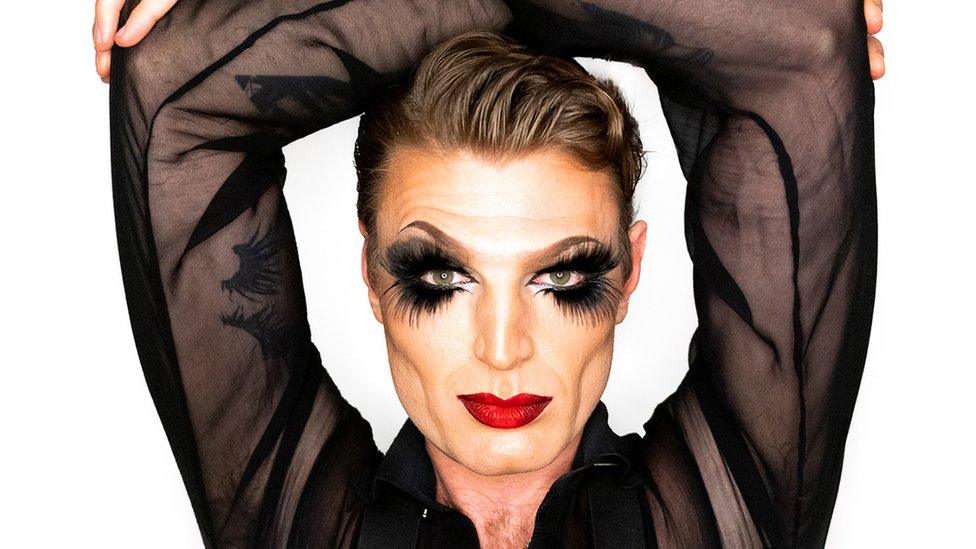
Reuben Kaye had shows postponed and death threats after he told a joke about Jesus on Australian television
Earlier this year Kaye himself had shows postponed and death threats after he told a joke about Jesus on Australian television.
He says the protesters don't care what the issue is, and will transfer their rage from show to show.
He says we need to question where the outrage is coming from.
"Is it because they are actually concerned about children, because if it were they would be concerned about child poverty, about child mortality and the high suicide rates for LGBTQI youth," he says.
"Or do they care about being told what to hate by politicians and media who are using my community to start a culture war?
"And they've done this before, with homosexual men in the 70s, with immigrants, and now the trans community."
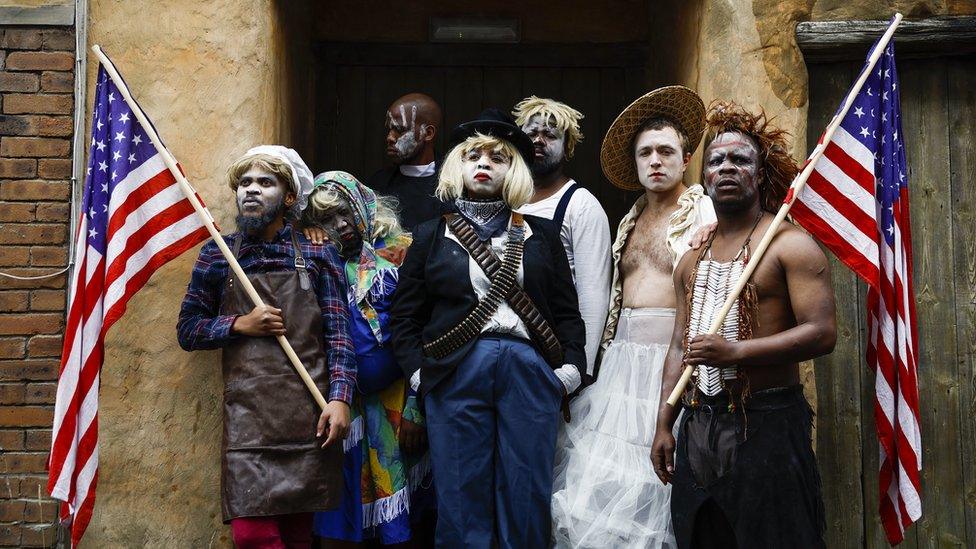
Dark Noon is a theatrical experience which questions the glorified Wild West seen in Hollywood films
He believes that the Edinburgh Fringe is still open to all, as does Fringe Society boss Shona McCarthy.
She says: "The fact it is a platform for freedom of expression is what brought me to the Fringe in the first place and it's why I stayed.
"The fringe doesn't cancel.
"An individual venue might decide in any given year, and even some of those shows that were nor possible then, are back this year.
"The Fringe has a way of working things out but it doesn't cancel a show, unless it's doing something illegal."
And that has happened in the past.
Exposed himself
In 1963, Anna Kesselaar was charged with acting in a "shameless and indecent manner" after she was wheeled across the stage of McEwen Hall, on a trolley, naked from the waist up. She was found not guilty.
Today, nudity regularly features in shows, without resulting in court action.
One of the complaints made about Jerry Sadowitz was that he exposed himself, something he does in most of his shows.
If staff weren't prepared, audiences certainly were, not least because his show was entitled "Not For anyone".
He'll return later this month for three shows in Queens Hall.
But Kate Copstick is worried.
"When you look back at what the fringe has turned out, surely a wee bit of it somewhere can be allowed to upset," she says.
"It's an open access Fringe, the most famous open access Fringe in the world. The other parts of the Fringe are going along fine.
"Comics get yourself sorted, venues you don't get to judge on the basis of what the show is talking about and certainly your front-of-house staff do not get to."
Related topics
- Published12 May 2023
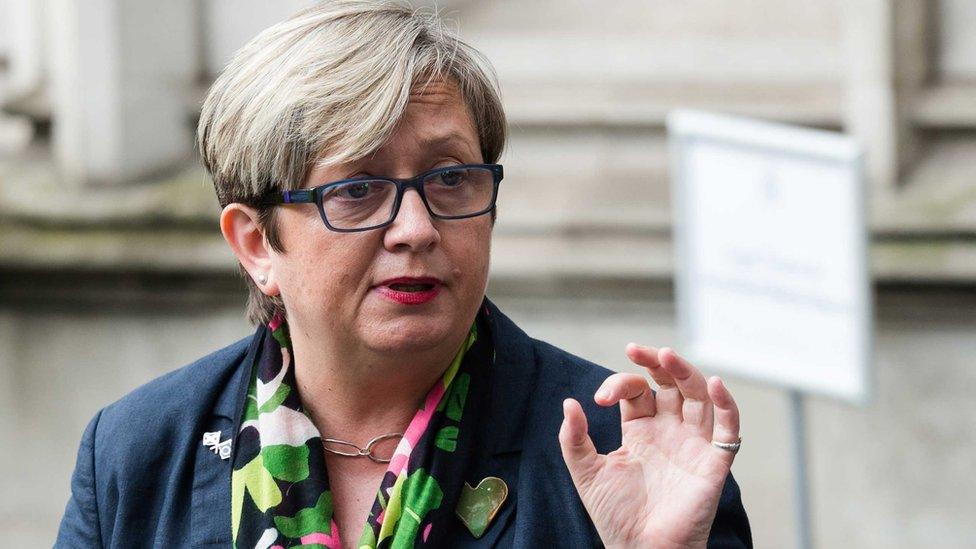
- Published13 August 2022
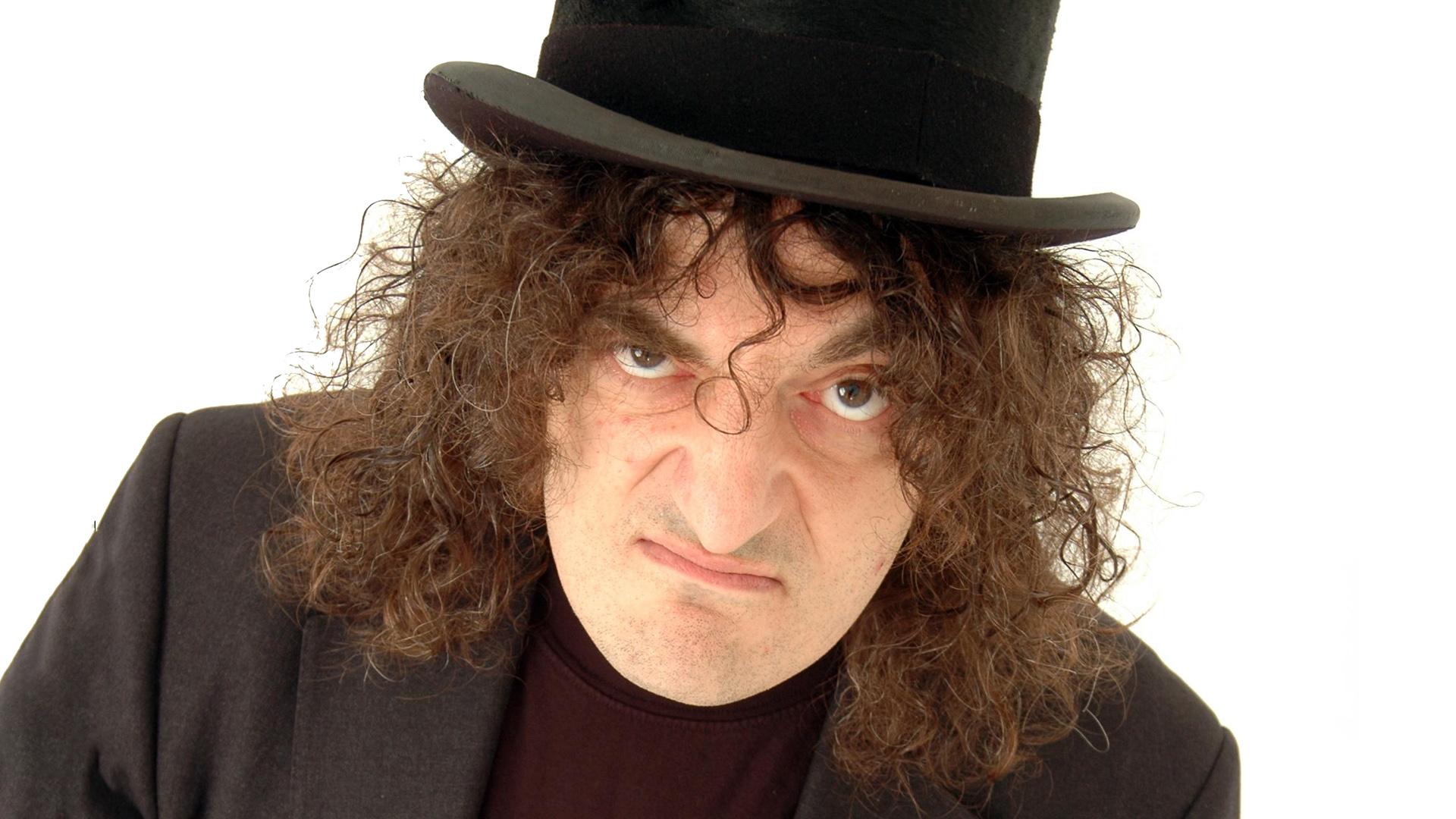
- Published27 July 2022
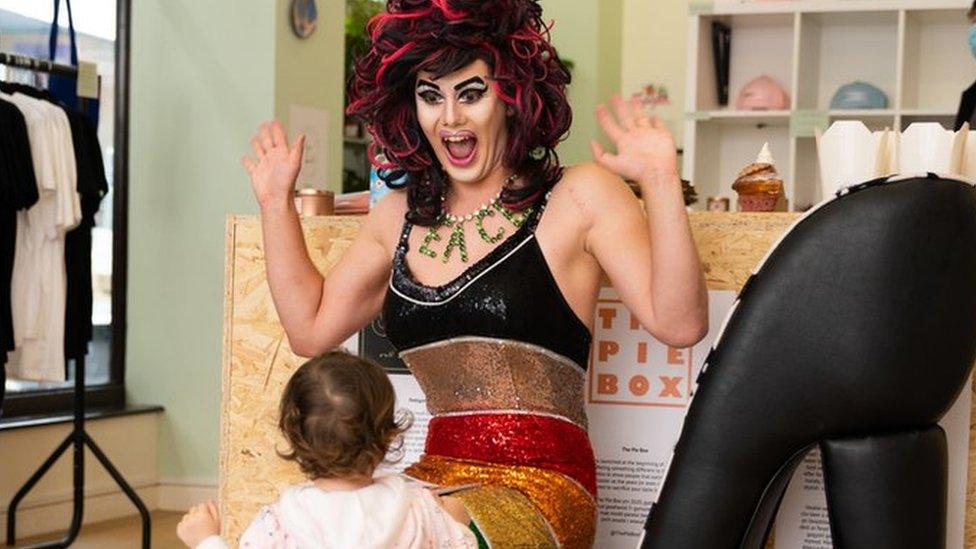
- Published9 May 2023
